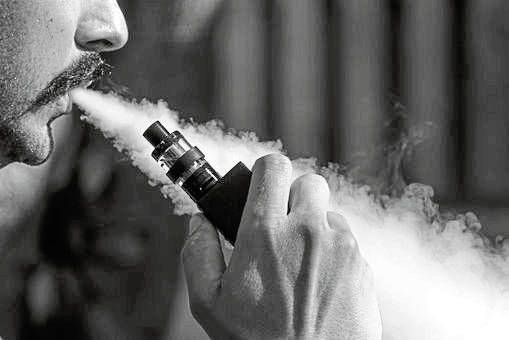Doctors in Western Pennsylvania are concerned and frustrated with an uptick in vaping-related lung illnesses diagnosed over the past few weeks.
Pittsburgh joins a growing list of places that have identified people with breathing problems related to vaping. The Centers for Disease Control and Prevention is investigating 215 possible cases of severe lung illness associated with e-cigarette use across 25 states, including Pennsylvania, between June 28 and Aug. 27.
In many cases, patients acknowledged recent use of products containing THC, the psychoactive compound in marijuana. But the CDC said no specific product has been identified in all cases and no product has been conclusively linked to illnesses. As a precaution, the CDC and the Food and Drug Administration have warned the public not to buy vaping products off the street.
In Pennsylvania, there have been 11 suspected cases of severe pulmonary disease associated with vaping as of Wednesday, according to Nate Wardle, spokesman with the Pennsylvania Department of Health. There is a lag time between when hospitals treat a case and when it is reported and reflected in the state numbers.
Dr. John Kreit, Pulmonary Division chief at UPMC Mercy, said that hospital network saw 12 patients in recent weeks, including one 16-year-old who required treatment including oxygen, ventilation and steroids.
Kreit said most patients experienced shortness of breath that became progressively worse. Some patients also experienced chest pain, nausea, vomiting and high fevers.
Kreit said the symptoms sometimes mimic illnesses such as pneumonia, but patients do not have an infection.
“We don’t know why it’s just showing up now,” Kreit said. “People have been vaping for a long time.”
Dr. Michael Szwerc, a thoracic surgeon and medical director at Excela Health’s Advanced Lung Center, said he is concerned by a recent increase in atypical pneumonia cases.
“We have seen in the past several years several presentations of atypical pneumonias,” he said. “Some of these have occurred in patients who were relatively young and who, ultimately, admitted to vaping.”
Szwerc said he’s concerned about a new generation of children and teens getting hooked on nicotine from vaping. He said there needs to be more education for middle and high school students so they understand the consequences of vaping.
“What we don’t know is whether or not the vaping itself could lead to lung cancers, but I am concerned that it will,” he said. “I don’t think there’s any evidence to suggest vaping is in any way less toxic than tobacco consumption.”
Szwerc said questions remain about the long-term effects of vaping, but patients who have admitted to vaping already have a higher instance of shortness of breath and bronchitis that could lead to chronic interstitial lung disease.
“The vaping may actually go deeper into the lungs than tobacco smoke,” he said. “You see the volume of smoke that comes out of these devices.”
Szwerc said he doesn’t want to see another generation end up being treated for lung cancer and other related illnesses in their adult lives because they started vaping at a young age.
“Your body wasn’t designed to put this stuff into the lungs to begin with — there’s no way to think it’s safe,” he said.
Gregory Conley, president of the American Vaping Association, a nonprofit for sensible regulation of vaping, said he believes the recent illnesses are only linked to black market THC cartridges and not nicotine vapes that are used correctly.
“We think it’s very important that health officials come out and actually say what is really happening,” he said.
Conley said he’s concerned the recent coverage of these illnesses is causing panic among people who vape and prompting some to return to smoking cigarettes.
“The fear of the unknown is hitting people,” he said. “When they hear a general warning about vaping, they don’t think about the THC pen, they think about Juul.”
Conley cautions people who are buying their products online or on the black market to think twice before buying.
Dr. Tariq Cheema, pulmonologist with Allegheny Health Network, said the hospital system has seen an increase of asthma among teens who are vaping. He said they’ve also had a case of a rare type of pneumonia that is believed to be caused by vaping.
“I definitely am expecting to see more and more of this,” he said.
Cheema said he suspects the recent increase in illnesses is linked to black market sales, but there’s no way to know for sure.
He said he’s seen an increase in patients who are smokers looking to switch to vaping as a way to quit cigarettes.
“Every smoker that comes to my office has the same question: ‘Can I try the electronic cigarette or vaping,’ ” Cheema said. “My biggest concern is because it’s not FDA approved, (we) have no idea what chemicals are being put into these devices.”
The FDA on Friday said it is investigating all incidents “as quickly as possible.”
In a statement posted on its website, the federal agency said it is “committed to taking appropriate actions as a clearer picture of the facts emerges.”
“Even though cases appear similar, it is not clear if these cases have a common cause or if they are different diseases with similar presentations, which is why our ongoing investigation is critical,” said Dr. Norman Sharpless, the FDA’s acting commissioner.











